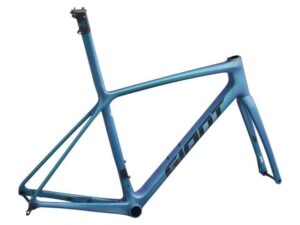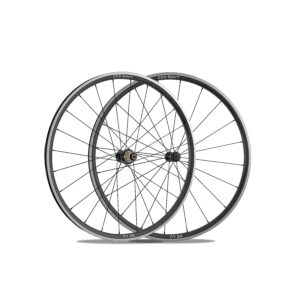Carbon Cycle Wheels – Should You Consider Them?
Carbon Cycle Wheels have gained a lot of traction (ahem) over the last decade or so. In fact, carbon has become the first choice for many cyclists when it comes to frames and components. Here at CES Sports, we love a carbon component as much as the next cyclist or triathlete. But should you consider aero or carbon wheels for your bike?
That may sound like a really odd question coming from a UK based carbon wheels company. Well, aside from the fact that we are all riders too; the CES Sports family values informed choice. When you buy your carbon wheels, you need to be buying from a position of understanding and not just because they look sexy! (We can all agree, carbon wheels look sexy, right?).
Let’s get stuck into the whys and wherefores of carbon wheels, and deal with a few of the FAQ’s in the process.

Are Carbon Wheels Worth Getting?
You will no doubt have noticed that carbon wheels have made a big impact on the racing circuit. In fact, the more astute of you may have noticed that CES wheels have shared podiums with some very talented riders. Take Jo Tindley for example, who recently stormed to victory in the British National Circuit Championships in 2021. A victory made even sweeter by the fact it was in her home town.
While we are rightly proud of Jo, and big advocates of carbon wheels for racing, does it follow that carbon wheels are right for you? This question is especially important if you are a leisure rider.
The truth is that carbon wheels are great for riders of all abilities and all disciplines. However, it is vital that we dispel a few myths and spell out the facts.
Do carbon wheels really make a difference?
Many people are under the impression that carbon wheels make a difference due to the fact that they are lighter. A phrase that is often bandied around is “rotational mass”. It is thought that cycle riders benefit from carbon because of a reduction in rotational mass, as rotating forces behave as if they are heavier.
While the physics of this statement is absolutely spot on, the premise is fundamentally flawed for road racing bikes. Why, we hear you cry? In motorsports and other situations where vehicles are driven at speed, a reduction in rotational mass is demonstrably better. If you are driving a formula one car or thrashing around a racing circuit on a superbike, then get your rotational mass down. You will see significant time savings lap on lap.
Not so with a pushbike because rotational mass primarily affects acceleration and deceleration. When cycling, a comparably smaller amount of time is spent decelerating, even in criterium situations. True, Jo Tindley is far likelier to decelerate heavily as she brakes into corners on a tight city circuit than the riders in a Tour peloton will. That said, carbon wheels are not as efficient at rim braking as their alloy counterparts, so that has to be factored in. (Disk brakes are a definite plus when considering carbon rims).
Acceleration is also very limited and so the cumulative effect of weight saving, even on circuits is marginal enough to be considered negligible.
If you want to learn more, see this excellent debunk video.
So, how will carbon wheels make me faster?
Where carbon wheels do make a vast difference is in aerodynamics. The forms that can be shaped from high tech materials such as carbon are significantly more aerodynamic than traditional wheel designs. Over distance, the time savings you will make in a race are significant enough to affect placings. Aerodynamics is why you should buy carbon wheels for increased performance, not weight reduction.
Of course, as part of an overall system weight saving plan, carbon wheels will add to the improvements felt when climbing and maintaining power output over distance. This is especially the case when touring or for weekend riders who are still finding fitness. Remember though, the system includes you the rider. It may be more cost-effective to lose a few kilos off your waistline than to buy carbon wheels. Club riders and weekend riders who are not competing should buy carbon wheels because they want improved aerodynamics for sportives, or simply because they want them. Weight saving is a plus.
How long do carbon rims last?
With regular inspections, truing and cleaning, a set of carbon wheels can last a committed leisure rider a couple of seasons or more. Competitive riders will enjoy significantly less time before replacement is necessary. Ready for another truth bomb? There is no safe recommended mileage or time span for carbon wheels. What is far more critical is regular inspection. Check carbon wheels as part of your weekly maintenance and before every significant ride.
If your carbon wheels start to show evidence of cracking or delamination, then it is time to say goodbye. As with carbon frames, a serious impact can finish a wheel instantly. If you buy carbon wheels, be prepared to replace them in the event of any significant impact. Never try to get another ride out of a wheel that has been damaged to the point of cracking or delamination. That goes for wheels that are showing heat damage on the rims too. 1000 miles, or 1 mile – the integrity of your wheel is the determining factor as to how long they last.
Many riders choose to have a set of alloy wheels for bad weather or rides that may be more demanding on a wheel. As a set of wheels can be changed so quickly, it makes economic sense to plan your ride ahead and swap between wheels as necessary.
Can carbon wheels be trued?
Yes, carbon wheels can be trued, and in fact are less likely to go out of true than alloy. The robust nature of a carbon rim is down to a mixture of more rigidity, deeper rims and the elastic nature of carbon. When you release the tension of spokes on a carbon wheel, the rim will return to its original shape. Alloy on the other hand, its a trickier beast.
Be honest, we have all chased a buckle around a rim at some point. Or, if you haven’t then you are likely getting someone else to true your wheels. With carbon wheels, truing is no more difficult than alloy, so your current ability level will still apply. The only complicating factor is when a carbon wheel has fewer spokes. Hypermodern styling may demand more accuracy when tuning spokes, simply because there are less spokes to achieve tension.
So will you buy carbon wheels?
We very much hope so. Team CES Sports takes great pride in its products. We have developed a range of carbon wheels that is both affordable and competitive. Hand built in the UK from the highest spec carbon, we have every confidence that our wheels will get you there faster in style. Whatever level you ride at, join Team CES Sport, and feel the difference.

